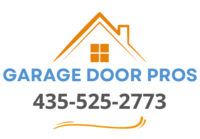While convenient and essential for many homeowners, garage doors can pose certain dangers if not correctly operated or maintained. Here are some potential hazards associated with garage doors:
- Pinch points and entrapment: Garage doors operate using heavy mechanisms, including springs, cables, and rollers. These moving parts can create pinch points or entrapment hazards, especially for small children or pets. It’s crucial to exercise caution and keep fingers, hands, and objects clear of the garage door’s moving components.
- Falling or collapsing doors: Garage doors are typically large and heavy, often weighing several hundred pounds. If a garage door is not balanced correctly or its components are worn or damaged, the door may fall or collapse unexpectedly. This can cause serious injuries or property damage. Regular inspection and maintenance of the door’s springs, cables, rollers, and tracks are essential to ensure safe operation.
- Malfunctioning sensors: Modern garage doors have safety sensors that detect objects or obstructions in the door’s path. These sensors help prevent the door from closing on a person, vehicle, or other things. If the detectors are not functioning correctly or are obstructed or misaligned, the door may not stop when it should, potentially causing accidents or injuries.
- High-tension springs: Garage doors use high-tension springs to assist in opening and closing. These springs are under significant tension and can cause severe injuries if they break or snap unexpectedly. Attempting to repair or replace garage door springs without the necessary knowledge, experience, and tools can be extremely dangerous. It’s best to leave spring-related tasks to trained professionals.
- Carbon monoxide (CO) exposure: Attached garages that are not adequately ventilated can pose a risk of carbon monoxide (CO) buildup. CO is a colorless, odorless gas that can be deadly when inhaled in high concentrations. This is especially true if fuel-burning appliances or vehicles run inside the garage. Ensuring proper ventilation and avoiding running engines or fuel-burning equipment inside the garage is essential.
To mitigate these dangers and ensure garage door safety, consider the following precautions:
- Regularly inspect and maintain the garage door, including springs, cables, rollers, tracks, and opener mechanisms.
- Test the door’s safety sensors periodically to ensure they are functioning correctly.
- Keep children and pets away from the garage door and educate them about the potential dangers.
- Do not attempt to repair or replace garage door springs without professional assistance.
- Ensure proper ventilation in the garage to prevent carbon monoxide buildup.
- Follow the manufacturer’s instructions for safely operating and maintaining the garage door and its components.
By taking these precautions and practicing safe operation and maintenance, you can minimize the risks associated with garage doors and maintain a safe environment for yourself and others. Call us today to schedule a free Garage Door Safety Inspection! 435-525-2773

One Response